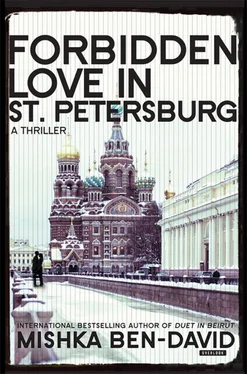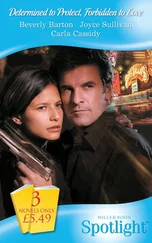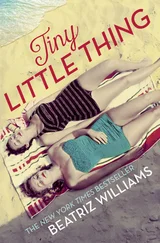When I said I was tired and would fall asleep immediately, my genial host said that in that case the woman would merely massage my shoulders and back and then, if I so wished, would go. But he still insisted on knowing if I wanted her to have black hair, or be a brunette or blonde. What sacrifices a man makes for the sake of his motherland! I said to myself. I went for a brunette but got a blonde. And in a strange and surprising way I felt as if I was being unfaithful to Anna.
After my visit to the port of Atyrau in Kazakhstan a few years previously, Makhachkala and its harbour were no surprise in terms of their seediness, poverty and the stench that rose from the fish processing plants and from the markets and roadside vendors on every street corner who looked more like vagabonds than vendors. Nonetheless there was something picturesque about the catch of fish being unloaded from the vessels and into crates, the old and rusted boats themselves, the mass of masts, winches, and nets, the shouts from the deck to the dock; something touching about the small fishing craft manned by doleful-looking fishermen squeezing their way in between the tall ships in the harbour.
Having struck his profitable deal the previous night, Mahashashli didn’t join me on my visit to the canning plant. Instead, I was accompanied by some of his assistants. The plant turned out to be a row of sheds and rusty makeshift buildings and the stench around it was unbearable. A large proportion of the shrimps had rotted in their crates having never even reached the refrigerated storage rooms. A group of labourers were working on assembling the new glittering canning machines which looked decidedly out of place in this otherwise dingy plant.
While still in my office I had gone through the instruction manual for assembling the production line and was able to exhibit a bit of know-how, check on the way the locals had assembled it, and even make a number of intelligent comments.
After the visit I asked my minders to leave me alone, but on Mahashashli’s orders at least one of them stayed with me at all times. As a result, the gathering of vital pre-operational intelligence in line with the instructions I had received was accomplished in the company of a bodyguard with a pistol poking out from beneath the short sheepskin coat he was wearing. To be honest, this suited me down to the ground. The very sight of his Mercedes opened all the gates for us and no one asked any questions. The guard spoke a little English and readily answered most of the questions of interest to HQ. He was even happy to photograph me against the background of the port and its ships–useful in the event that at some point we might want to use the port of Makhachkala as a stepping stone to Iran.
In the absence of hotels, and not wanting to offend my host, I remained in the guest suite in his palace for another night. As a brunette accompanied me to my room, Mahashashli took the trouble of whispering in my ear that the manager of the escort agency had been fired after having in error sent me the blonde thinking that that was what foreigners preferred. I could only hope that his ground flesh would not be mixed in with the shrimp paste soon to be canned with the help of the new equipment I had supplied.
But today you are not tired, right? I want to find her in your bed in the morning! he said, parting from me laughing like a drunkard though his harsh eyes again testified to total sobriety.
I assumed that the sexual deviancies of the ageing Mafioso included watching my activities in bed on CCTV and for sure recording them for some possible future use. But the real reason for my sending the woman on her way at the end of a pleasant massage were my thoughts about Anna.
When I left in the morning with the driver to return to the city, we passed the brunette walking along the roadside. I asked the driver to stop but he refused.
She walk because no sleep with you, he said, and continued to drive on at speed.
After an absence of two evenings I returned to the restaurant. I heard a car door slam and when, a moment later, I reached the entrance to the restaurant I thought I could see Anna approaching from the end of the street. A car was parked with its light on a little behind her. Then it reversed and disappeared. Despite the cold I decided to wait for her. I watched her upright somewhat dreamy strides coming towards me and felt my heart pumping. When Anna’s pensive look caught sight of me an engaging smile swept across her face.
It’s cold, she said. Why didn’t you go in?
I was waiting for you, I said simply, and she instinctively turned her head round in the direction from which she had come and then swung it back towards me.
Have you been here long?
I just arrived, and saw you coming.
I thought to ask about the car but it would have been tactless. Instead I filed it as a question somewhere at the back of my mind.
I read the chapter ‘At Tikhon’s’ I said, but haven’t brought the book back. I didn’t come here straight from my apartment. Is it OK if we sit together and talk about it?
Of course, Anna answered, flustered. Of course. I prefer the window, is that OK? I agreed and we sat at her regular table.
Mrs Vashkirova smiled in satisfaction when she saw us sitting together and asked if she should bring our usual dishes and whether, for a change, we would like to have some house wine. Shall we? I asked Anna. She happily consented.
With a flashing smile she turned from being a beautiful, sad woman into a gorgeous, joyful, young girl. Once again her beauty made me feel as if I’d been pierced to the heart. But we were here to talk about the book.
Have you understood that Bishop Tikhon sees that for Stavrogin there is no difference between the crime and the confession? she said after a while.
How can that be? I asked.
Because Stavrogin wants to confess in exactly the same way as he commits his crimes. It is his way of controlling his existence.
But he will go to the gallows if he publishes the confession.
Going to the gallows, like committing the crimes, is an expression of Stavrogin’s existential nihilism and this was something that Dostoyevsky was unwilling to accept. This conjunction of existentialism and nihilism only became acceptable after his time, she explained, and I didn’t really understand. It seemed to me that only Russian or French intellectuals talk that way.
Our food arrived, bringing our literary conversation to an end. I poured us two, rather full, glasses of the red wine and clinked my glass with hers.
What shall we drink to?
To Dostoyevsky and his admirers? she suggested.
To his admirers, I agreed, which means to us.
She gave me a look of approval and took only a sip of the wine, which was tolerable but no more than that.
Have you seen Dostoyevsky’s grave? she asked.
I didn’t know it was in St Petersburg.
It’s in a church at the far edge of the city, and I recommend a visit. She didn’t suggest going with me.
Anna slowly drank her soup in silence and I waited before asking the question that I’d thought of asking since I first laid eyes on her.
You… are single?
You too, she said in a mixture of question and assertion, tilting her head to one side.
I got divorced a few years ago, I said. It really did feel as if years had passed since then.
Children? she asked, still not answering my original question.
We didn’t have any, and that, it seems, was the reason we divorced, I told her, adding a slice of my real life to the legend.
Again there was silence. And then, apparently finding it difficult to get the words out, Anna said, my husband is dead. He was killed in a traffic accident a few months ago.
All at once her story and her demeanour linked up and at that very instant I understood the cloud of sadness and solitude that hovered above her–the dreamy, even weary, quality there was about her. That also explained her being in this neighbourhood restaurant almost every evening. I was now sure that the matter of the car disappearing in reverse which, in terms of timing could well have been linked to her arrival, was nothing more than pure coincidence and nothing whatsoever to do with her.
Читать дальше












